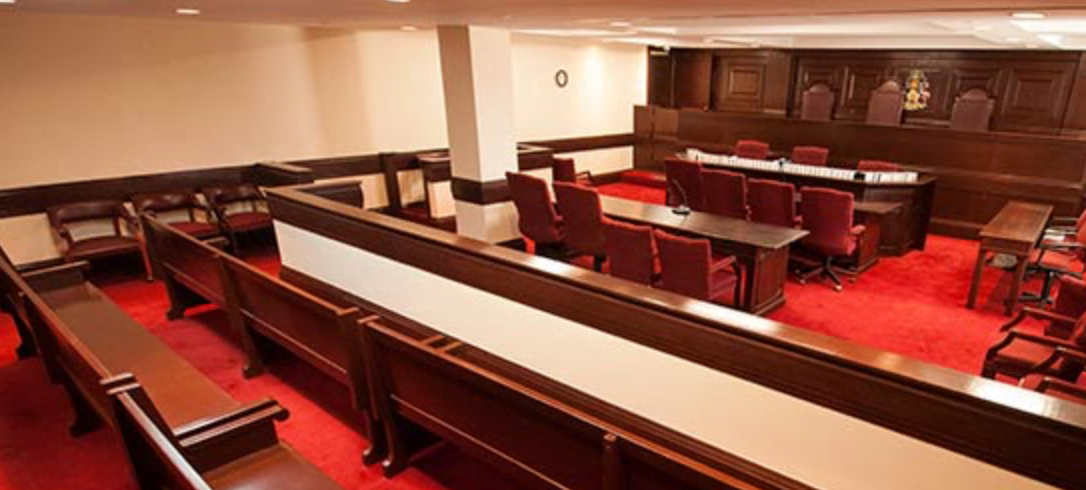NASSAU, BAHAMAS — The Court of Appeal has determined that a Supreme Court judge erred when she informed an insurance agent that her bill for her legal costs against her former employer was too high and that she could get less upon taxation by the court if she did not accept the judge’s $60,000 award.
Jennifer Bain, a former sales agent with BISX-listed Family Guardian had been awarded damages for conspiracy and defamation against her former employer following her termination after Justice Indra Charles found that the company had tried to injure her financially by trying to prevent several major clients from doing business with her after the two sides parted ways in June 2015.
The termination came after Bain informed the company that she was pursuing tertiary education in the United States; a decision the insurer claimed constituted a breach of contract. Bain however contended that her productivity was not impacted by her physical absence and therefore the company had breached the contract when it terminated her without proper grounds provided in the agreement.
Bain began working with another insurance company and some of Family Guardian’s former clients took their business to that company. According to evidence provided in court, the insurer wrote a letter accusing Bain of improperly using client information and copied the letter to the supervisor for insurance companies – The Insurance Commission.
Justice Indra Charles had awarded her $20,000 in damages for the conspiracy to injure her via lawful means and another $25,000 over the defamatory letter to the Insurance Commission. Her former employer was also ordered to pay $60,000 towards her legal costs, $10,675 in disbursements, and damages for breach of contract equivalent to a year’s notice pay. Bain had sought some $230,000 in professional fees which the judge had found excessive.
Although Bain’s appeal against the judge’s ruling was largely unsuccessful, the court set aside the $60,000 cost award and sent the matter back to the Supreme Court for the Bill of Costs to be duly taxed before the Registrar.
The appellate court in a ruling delivered by Justice Sir Michael Barnett said it was not satisfied that in all of the circumstances, conspiracy to injure by unlawful means was made out on the facts and found no basis upon which to interfere with the judge’s award of $20,000 on the charge.
“In my judgment, given that there is no dispute by the Respondent that the judge may have overlooked the question of awarding prejudgment interest, this Court can exercise the discretion to award prejudgment interest. As such, prejudgment interest is awarded on the damages to the Appellant at a rate of 2.4 percent from the date the writ of summons was issued on 17 February 2016, to the date of judgment on 8 March 2022,” Sir Michael stated.
He also found however that it was not unreasonable to infer that Bain may have accepted the $60,000 sum offered by the judge under duress; that if it were not accepted, the judge would tax the bill herself and not send it to the Registrar for taxation in which circumstance she could have gotten less as the judge had hinted.
“Although the judge had indicated that the taxation may likely yield a lower sum of $60,000, there still remained the possibility that taxation (by the Registrar, who is the empowered taxing authority) may have yielded a greater sum than $60,000,” Sir Michael noted.
“An item-by-item examination of the legal work that the appellant set out in the Bill of Costs may possibly have demonstrated that a sum higher than $60,000 was warranted; the taxation could also have resulted in a lower award than $60,000. Nonetheless, the Appellant ought to have been permitted to take this gamble and see whether the taxation before the Registrar would have yielded a more or less favorable sum. In my judgment, the judge erred in informing the Appellant that her bill was too high without even hearing from the Respondent as to its reasonableness,” Sir Michael noted.
He added: “The judge was wrong to threaten the appellant with taxation by herself in the event that she did not accept the sum of $60,000.00. This was exacerbated when she told the appellant that she may get less than $60,000.00 on taxation by the judge.
“This error effectively deprived the Appellant of having the Bill of Costs taxed before the Registrar. Accordingly, the Appellant succeeds on this ground of appeal. The judge’s award of $60,000 with respect to costs is set aside and this matter is remitted back to the Supreme Court for the Bill of Costs to be duly taxed before the Registrar.”






